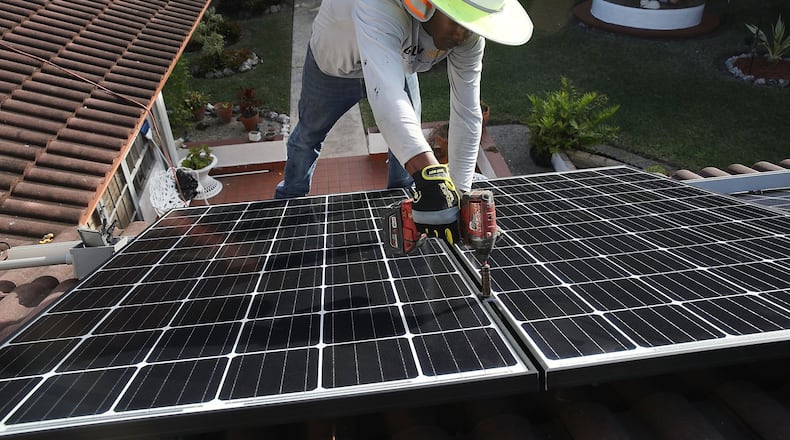Metro Atlanta added 500 new jobs in the solar industry in 2017, despite a nationwide tank in the solar market fueled by low sales and anxiety related to a trade dispute involving Chinese products.
The state solar job growth stood at 10 percent, continuing a three-year streak.
Newly released data from the Solar Foundation shows Georgia now ranks 15th nationwide in solar energy generation, with a total of 4,310 jobs. California still ranks highest in the nation.
Majority of the jobs created locally were in installation, followed by solar manufacturing.
Pete Marte, the vice chair of the Georgia Chapter of the Solar Energy Industry Association (SEIA), says the industry is headed for a rebound, now that the trade dispute has been settled and module prices have stabilized.
“In the next two years, it’s going to be adding more people and jobs to our team,” said Marte, who owns Hannah Solar, an Atlanta-based solar installation company that employs 90 people.
He credits the growth prospects to incentives brought about by the Investment Tax Credit. Currently, the tax credit stands at 30 percent and will reduce gradually to 26 percent in 2020 and 22 percent in 2021 before dropping to zero for residential customers and a permanent 10 percent to commercial customers.
“That’s been a large part of what fuels investment in solar and has helped us help the industry levelized the playing field with the other energy sources that have been around for so long,” said Marte.
The job figures also show “how far we have come in making clean energy a solution for everyone that calls Atlanta home,” said Ted Terry, director of the Georgia Chapter of the Sierra Club.
Last May, the City of Atlanta, adopted a resolution to work toward having 100 percent of the electricity consumed in the city generated through renewable energy sources by 2035.
Marte says growth patterns across the sector, which is subject to seasonality, are set for a rebound as the installation season kicks in this month.
The report said growth was slowed in 2017 because of uncertainty about the outcome of the trade dispute involving China. International Trade commissioners determined that China was dumping cheap crystalline-silicon solar PV cells, hurting local solar manufacturing companies.
President Trump imposed a 30 percent tariff on solar panel imports from China in January following the commissioners' determination.
The complaint was filed by Georgia-based solar panel manufacturer Suniva.
Overall, solar accounts for 1.9 percent of the nation’s electricity generation, but the industry is the third highest employer in the energy sector.
The number of jobs in Georgia’s solar industry is steadily increasing:
2015: 3,185
2016: 3,924
2017: 4,310
About the Author
Keep Reading
The Latest
Featured



